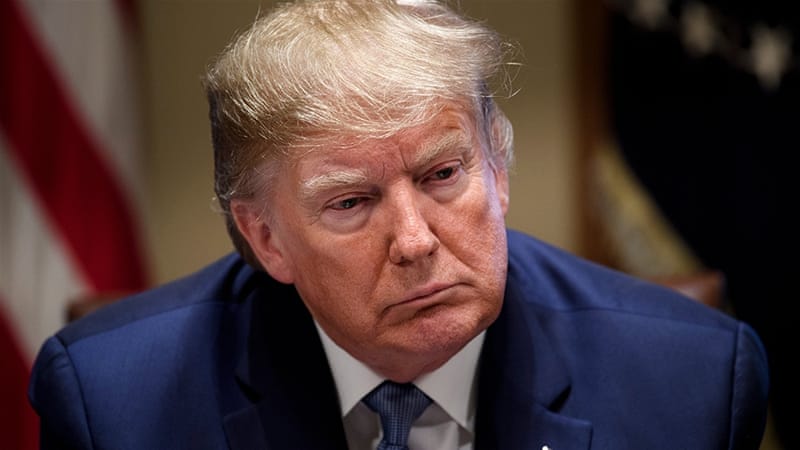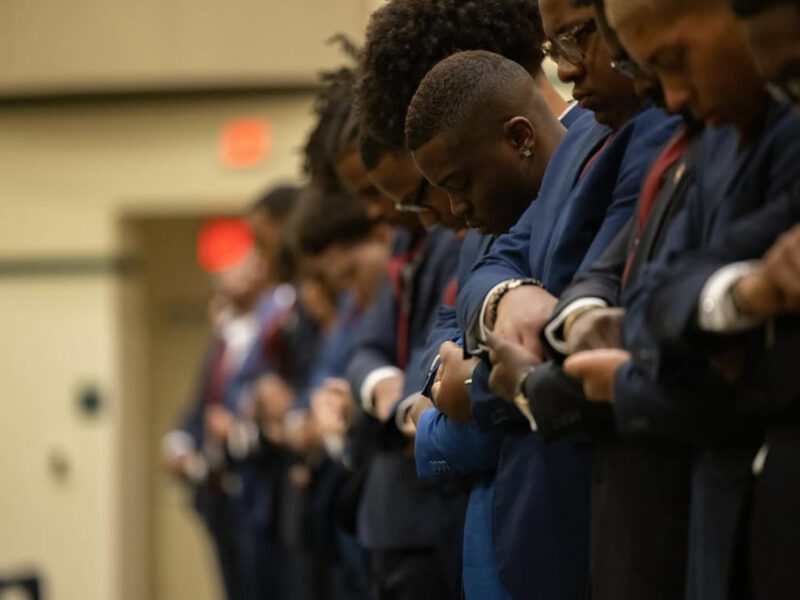Trump’s impeachment: timeline of events to follow along with recent hearings

Joshua Duffy-Cooper, Staff Writer
It’s campaign season in the United States. That means tensions are high, issues of all kinds are at the forefront of news and media, and change, for better or for worse, is coming. The 2020 presidential election season is possibly the most critical election cycle in recent years, especially with what is occurring at the Trump White House.
A vote in the House of Representatives for or against the impeachment of President Donald Trump is coming soon, finally. More than half of America has been calling for it since Trump’s 2016 election. But what is it? How does it work? And most importantly, how did we get here?
Let’s go over the basics: Impeachment is the process by which the House of Representatives levels charges against a government official. Impeachment in itself does not remove the official from office; it is similar to when a person goes to court with criminal charges. Article 1 of the U.S. Constitution states that the House of Representatives has the sole power of impeachment and that the Senate has the only authority to try impeachments.
Unfortunately, an official impeachment has not been voted on. Speaker Nancy Pelosi called for an impeachment inquiry on Sept. 24, following a series of events that began from a whistleblower’s complaint.
A Quick Summary:
April-May:
- Trump’s personal attorney, Rudy Giuliani, puts pressure on the Ukrainian government to announce the investigation of Hunter Biden, the son of Democratic candidate Joe Biden. The Ukrainian government has a meeting about how to stay out of American politics.
- (This shows clear intent to damage the Joe Biden Campaign and will remain consistent through the inquiry.)
July:
- Office of Management and Budget informs Pentagon and State Dept. that Trump withheld $391M in military aid from Ukraine.
- Trump has a meeting with Ukrainian ambassadors asking them to investigate Hunter Biden.
- In a recorded phone call, President Trump attempts to bribe Ukrainian President Peter Zelensky. Trump asks Zelensky for a “favor” because “the United States has been very, very good to Ukraine.”
- Trump’s objective is to weaken the Biden campaign and to cast doubt on Russian tampering in the 2016 U.S. election.
- Trump attempts to do this by suspending the $391M in military aid intended for Ukraine and using it as political leverage to try to force President Zelensky to announce investigations designed to hurt Joe Biden and to cast doubt on Russian tampering in the 2016 U.S. election.
August:
- Ukrainian officials are made aware of the withheld aid.
- Whistleblower files official complaint on Aug. 12.
- Trump ignores the Security Council’s recommendation to release the aid.
September:
- Bilateral meetings are held in Warsaw, Poland.
- European Union Ambassador Gordon Sondland stated in his testimony:
“I now recall speaking individually with [Zelensky aide Andriy] Yermak, where I said that resumption of U.S. aid would likely not occur until Ukraine provided the public anti-corruption statement that we had been discussing for many weeks.”
- The aid is released to Ukraine on September 11.
-
- Pelosi announces a formal impeachment inquiry on Sept. 24.
- The White House releases a “partial transcript” of the conversation between President Trump and President Zelensky on Sept. 25.
- The whistleblower complaint is released on Sept. 26.
October:
-
- WhatsApp messages between Trump’s former emissary to Ukraine published implicating formal intent to commit election-tampering events.
- Throughout October, the impeachment inquiry proceedings advance slowly. Republicans and the White House continually try to undermine and disrupt the process.
- Inquiry proceedings have examined and subpoenaed high-level government officials, UN ambassadors, and emissaries, as well as foreign governments.
- The House decides to move forward with the impeachment proceedings, advancing from a closed-door inquiry to fully public hearings on October 31.
November:
- In November, we have watched the impeachment hearings unfold, and can expect some significant developments or decisions coming from both the Trump White House and the Speaker of the House shortly.
What does this mean? That impeachment is on its way. Currently, the Democratic Party and Congress are making sure they have enough evidence and support to continue with impeachment.
Trump’s term in office has been an especially complicated one; he adheres to a few of the social norms nor expectations that ordinarily apply to presidents. However, should Trump officially be impeached, it will significantly hurt his reelection hopes and will forever stain his presidency. That, in itself, can be considered a victory.
This week the Democratic debates will be held in Atlanta and a multitude of political candidates will have rallies on various campuses throughout the AUC. We, as African Americans, should be extremely active in our political process, especially those who attend HBCUs. We are the future leaders and drivers of our peoples’ progress.
Make time for politics this week. History is unfolding before you and throughout the AUC. Take advantage of the opportunity to drive the narrative. This week, you could be a reason, moreover, an agent, for change in our country.






